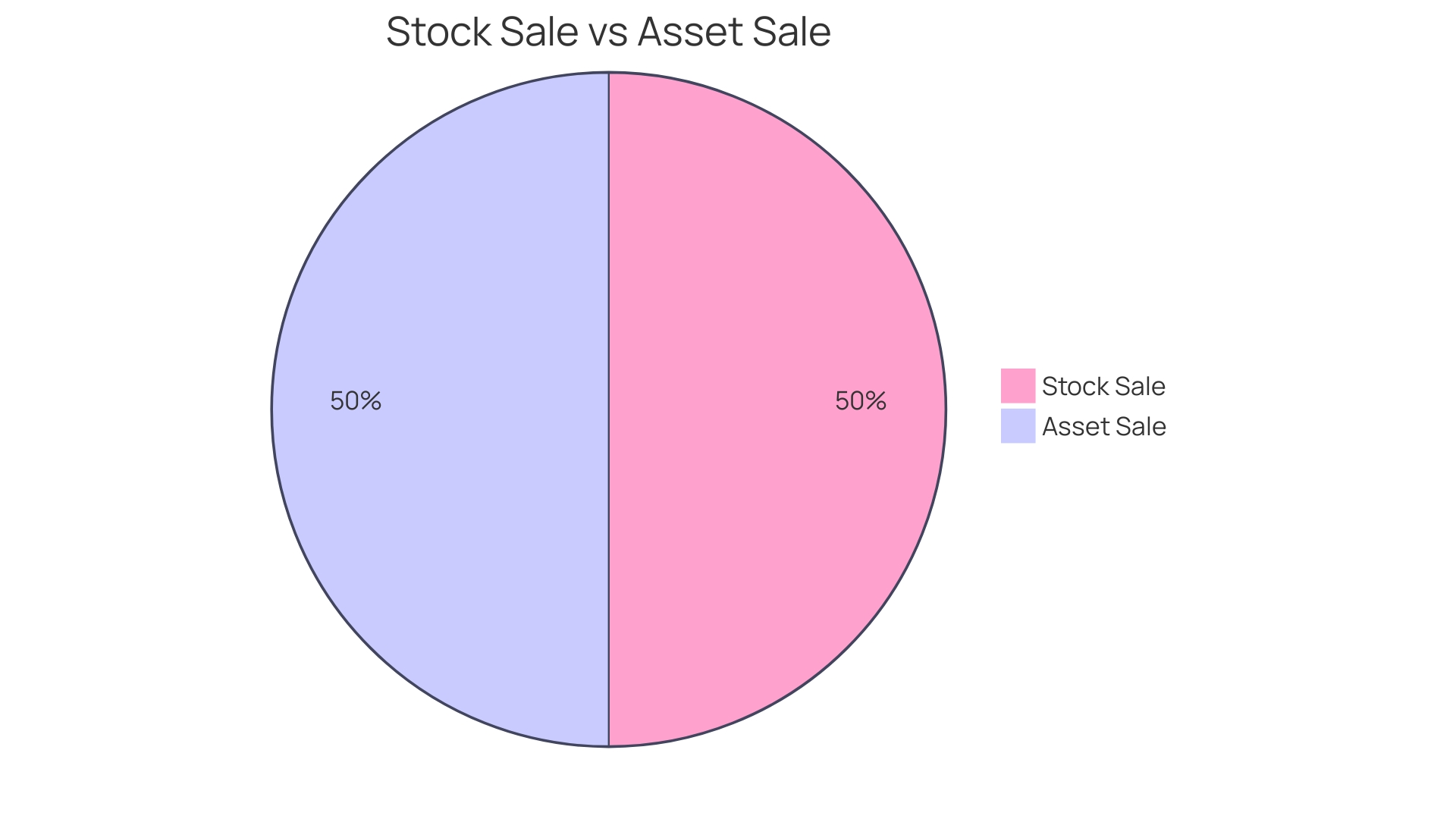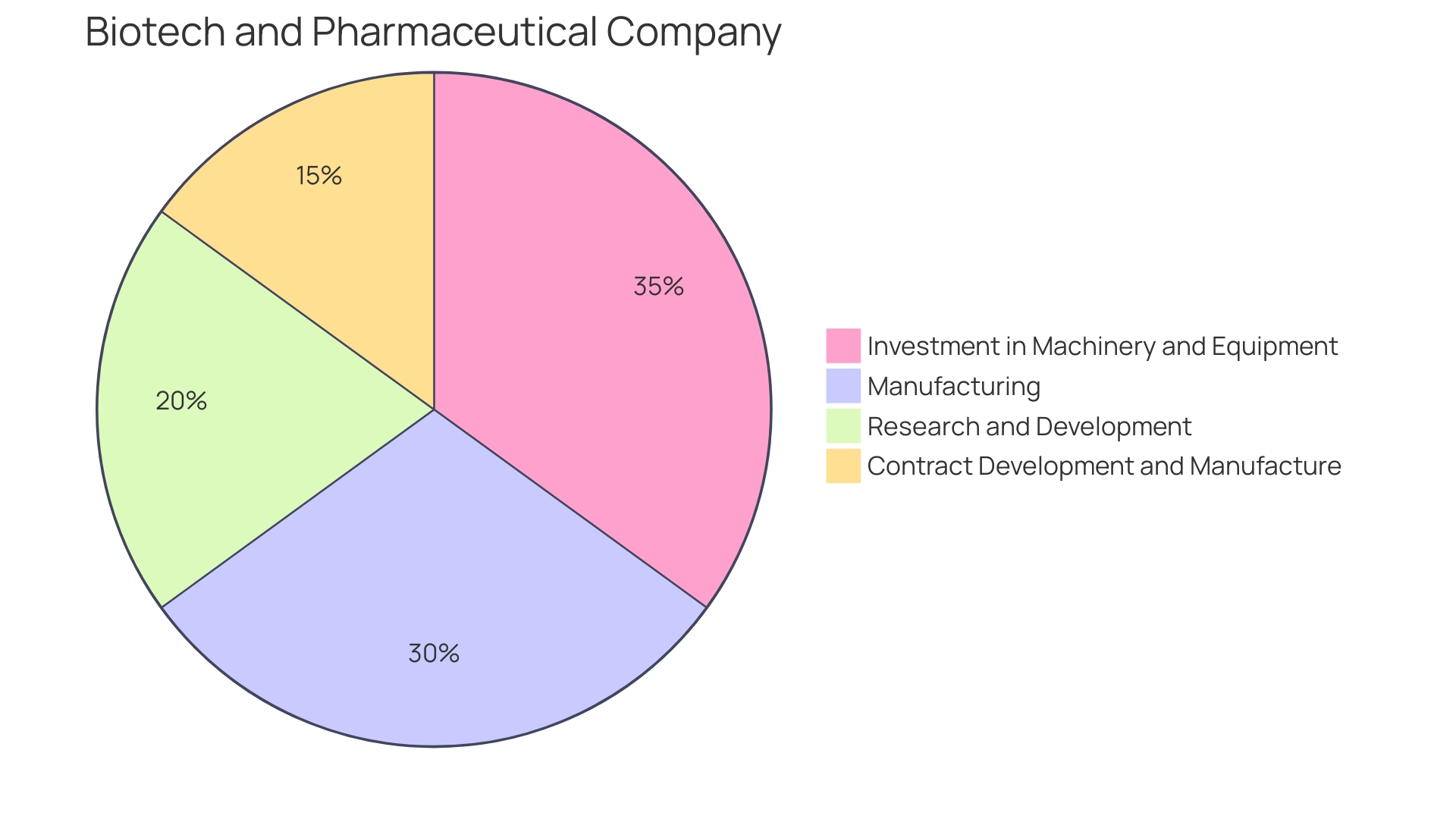Introduction
Do you plan to sell your business and need to know more about how capital gains tax may affect you? Taxes can seem complicated at times. Its important to have a good understanding of the fundamentals in order to reduce your tax liabilities and make the most of your profits.This piece will delve into the basics of capital gains tax. Covering topics such, as cost basis and how the length of time you hold an asset can influence your taxes.
Lets also look into the factors to consider when choosing between selling stocks or selling companys assetssale of company'sassets. MoreoverFurthermorewe'll explore the Qualified Small Business Stock (QSBS). This is a chance to lower tax payments, on investment profits. LastlyTo wrap upwe'll talk about the advantages of using a 1031 exchange to delay paying taxes on capital gains.
Understanding these ideas will help you make well informed choices and increase your financial achievements when you decide to sell your business.
Understanding Capital Gains Tax Basics
When considering the sale of your company and maneuvering through the world of tax consequences on profits becomes information to acquire.. This tax relates to the earnings derived from selling a particular item and the exact sum owed can fluctuate depending on variables.. The key to reducing capital gains taxes involves understanding the difference between the selling price and the initial expense of your enterprise referred to as 'cost basis'. The duration of time you have possessed the property also plays a role, as long-term holdings typically incur lower tax rates than short-term ones.
Let's simplify matters when dealing with capital gains tax by focusing on the fundamentals. To clarify transactions in this context; there are primarily two types. In a stock sale scenario buyers acquire shares of your enterprise which's typical in C corporations and S corporations. On the hand in an asset sale you're selling physical assets such as buildings and equipment.The decision, between these options can notably impact how capital gains are calculated and the taxes that result.
For example; imagine acquiring your enterprise for $200K and investing $100K for enhancements in the future. In the event that you choose to sell off the company for $350K, your profit would be $50K. Just remember though that this number could be impacted by aspects such as equipment devaluation and the expenses linked to any long term capital enhancements made over time. These subtleties play a role, in determining the extent of your profit. Therefore how much you owe in taxes.
Additionally it's important to take into account the expenses beyond the initial cost when assessing business assets Incurring costs for setting up and training staff can contribute to the value of the asset and should be factored into calculations Recognizing these specifics can have a substantial impact on the financial and tax strategies, for selling your business helping you to make informed decisions that are tax efficient
Considering the intricacy of dealings and the uncertainty tied to investing in them it's prudent to consult with a tax or financial expert, for advice. They can offer recommendations according to your specific circumstances to assist you in reducing tax obligations and optimizing earnings from selling your company.

Strategic Holding Periods to Minimize Tax
When you have a grasp of how capital gains tax works it can help you save quite a bit when you sell your company! One important factor to take into account is the duration for which you have possessed your enterprise possessions before disposing of them. Retaining them for more than a year could result in being taxed at a reduced long-term rate in contrast to the elevated short-term rates, for properties sold within a year of purchasing them.
When you're considering selling something like a company or a company's properties and trying to choose between a stock sale or a property sale—there are some distinctions you need to bear in mind. A stock sale basically means transferring ownership through shares. Is often seen in transactions involving C and S corporations. On the other hand, an asset sale is when you sell the physical and capital assets of the company itself—these assets typically last longer than a year and can affect how capital gains tax is calculated.
Capital profit is basically the earnings you acquire from an investment like your enterprise – it's the contrast between what you paid for it including any money spent on improvements) and what you sell it for later on. To exemplify this point further; If you purchase a company for $200k and then invest $100k to enhance it before selling it for $350k, on – this would imply you've accomplished a capital increase of $50k.
When assessing the value of company possessions in anticipation of a transaction, it is crucial to consider all associated costs, not just the original purchase price. These may cover charges such as establishment and training, which contribute to the valuation of the resources and the overall financial revenue.
Just keep in mind that the rates for short and long term capital profits vary when selling stocks or assets – so it's essential to understand these variations for a tax approach, to effectively sell your assets. Choosing between these types of sales can have a significant effect on your profits and highlights the importance of meticulous financial and tax planning to maximize your returns.
Every professional situation is unique. Consulting with a tax specialist can provide customized guidance that aligns with your specific requirements. They can help you comprehend the complexities of capital gains tax so that you can make well-informed decisions that are in line with your financial goals.

Qualified Small Business Stock (QSBS) Exemption
For entrepreneurs out there seeking to navigate the tax landscape efficiently and effectively leverage tax benefits on their journey towards financial success and growth in their small enterprises, the Qualified Small Business Stock (QSBS or Section 1202 exemption) offers a valuable opportunity to reduce taxes owed on capital gains realized from the sale of eligible small business stock. Created to promote entrepreneurship and stimulate investment in enterprises, this tax incentive holds great appeal for companies involved in eligible trades or businesses that meet the requirements for this distinctive tax benefit. If the stocks of your company meet the requirements outlined in the Internal Revenue Code – such as being held for a minimum of five years and utilizing at least 80% of its assets in active Qualified Trade or Business (QTOB) operations – you might qualify for a substantial decrease or even exemption, from capital gains tax when selling your stocks.
It's important to mention that there is a limit on the exemption amount; you are able to exclude the higher of $10 million or 10 times your investment in the stock. This guideline is designed to inspire entrepreneurs to achieve higher levels of success by fostering growth and creativity. However, it's important to mention that eligibility is closely monitored. Some enterprises, such as those dependent on employee reputation or skill value, do not meet the criteria for this benefit.
This tax advantage complements the Qualified Income Deduction (QBI) a provision for small enterprise owners that grants a deduction of up to 20% on profits for sole proprietorships and partnerships as well as S corporations and certain trusts and estates. The QBI aims to lighten the tax load for enterprises earning below designated thresholds in order to promote a setting, for small enterprise growth and success.
In the evolving world of small enterprise funding choices like government grants or specialized industry support programs play a crucial role in supporting the growth and long term success of small enterprises. These tax advantages serve as a means to promote growth and sustainability for enterprises in need of financial assistance. When faced with obstacles such as those witnessed today, leveraging tax breaks such as the QSBS exemption and QBI deduction can have a profound effect, empowering enterprises to transform tax obligations into opportunities for expansion and advancement.
Exchange: Deferring Capital Gains Tax
Using a 1031 exchange is a strategy for owners aiming to postpone capital gains tax payments upon selling their company. Also known as a like kind exchange by the IRS guidelines. The strategy enables reinvestment of sale proceeds into a business or property and grants entrepreneurs the flexibility to defer tax obligations for a future period. This approach not safeguards current capital but also offers the potential for increased returns, on the reinvested funds. To make the most of this chance it's crucial to follow IRS guidelines and work together with a middleman. The advantages are widely known. Look at the experience of Dennis Boyd. He watched his $65K real estate investment grow to a $3. $500K, in due course. Through choosing a 1031 exchange not did he skip significant taxes right away but he also set up his descendants for a better financial outlook by securing a higher cost basis for them upon inheritance. Strategic planning can lead to benefits in the long run showcasing its effectiveness and importance.

Conclusion
In summary it's essential to grasp the fundamentals of capital gains tax when you sell your business. Considerations, like the investment and how long you’ve held onto assets can greatly influence your tax obligations. Deciding between selling stocks or assets can also impact how capital gains get figured out.
To lower your tax responsibilities effectively seek advice, from a tax financial advisor who can offer personalized guidance to lessen tax burdens and enhance profits when selling your business.
Holding onto assets strategically for a period can lead to reduced tax rates, which is crucial for devisng a successful tax strategy that takes into account the differences, in tax rates when selling stocks or assets.
The exemption for Qualified Small Business Stock (QSBS) provides a chance to lower tax burdens on capital gains that your business may encounter.If your companys shares fulfill the criteria you might be eligible for a significant reduction or even exemption, from capital gains taxes.
Using a 1031 exchange can help postpone paying capital gains taxes by allowing the reinvestment of sale profits into a business or property option that offers flexibility and the chance, for returns.
To make the most of selling your business and achieve success in the tax landscape efficiently it is important to grasp these ideas and collaborate with specialists. Seeking guidance, from professionals can help you seize these chances and reach your goals effectively.




